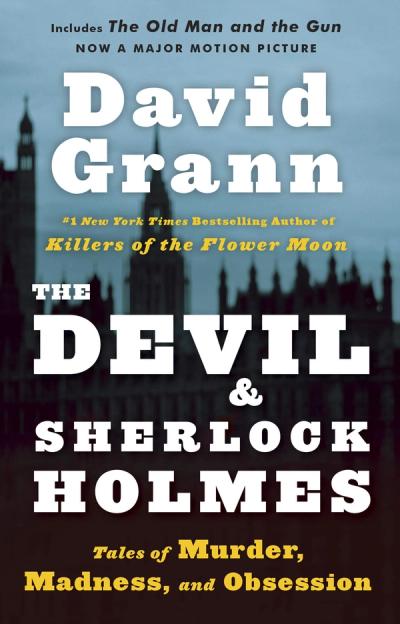The Devil and Sherlock Holmes
The truth is always stranger than fiction, even when it comes to murder mysteries. That’s the take-home lesson of New Yorker writer David Grann’s latest collection, which brings together 12 stories of real-life mysteries, each one stranger and more gripping than the last.

No journalist working today spins a yarn quite like The New Yorker's David Grann.”
— Slate
Whether he’s reporting on the infiltration of the murderous Aryan Brotherhood into the U.S. prison system, tracking down a chameleon con artist in Europe, or riding in a cyclone-tossed skiff with a scientist hunting the elusive giant squid, David Grann revels in telling stories that explore the nature of obsession and that peel back hidden, often dangerous realms. This breathtaking collection includes stories about the foremost expert on Sherlock Holmes who is found dead in mysterious circumstances, about an arson sleuth trying to prove that a man about to be executed is innocent, and about sandhogs racing to complete the brutally dangerous job of building New York City’s water tunnels before the old system collapses.
Throughout, Grann’s accounts display the full power—and often the perversity—of the human spirit. Compulsively readable, “The Devil and Sherlock Holmes” is a brilliant mosaic of ambition, madness, passion, and folly.
More praise for The Devil and Sherlock Holmes
In The Devil and Sherlock Holmes, these straightforward tales grip you as unrelentingly as the suckered appendages of the giant squid Grann attempts to track down in ‘‘The Squid Hunter.’’ You might feel that some of the pieces skirt credibility, but remember, as Holmes himself once said, ‘‘Life is infinitely stranger than anything which the mind of man could invent.’
The sign of a lasting work of nonfiction is that it’s still a gripping read years after its original publication has been consigned to the recycling bin. These pieces, without exception, meet that test.
Grann’s new book is The Devil and Sherlock Holmes, a collection of—well, I want to call them short stories, or novellas, because they read like fiction, even though they are all non-fiction.